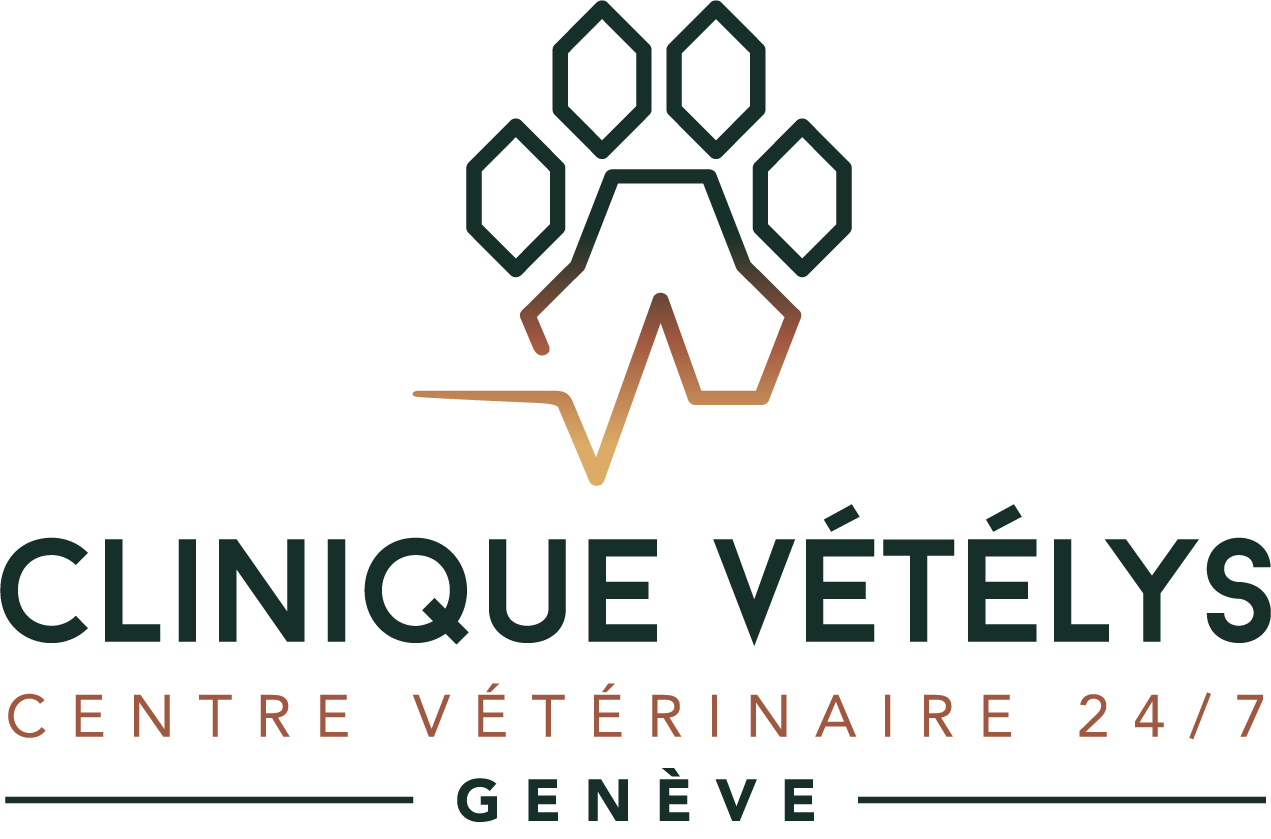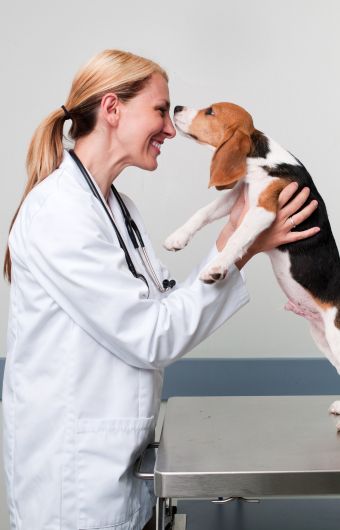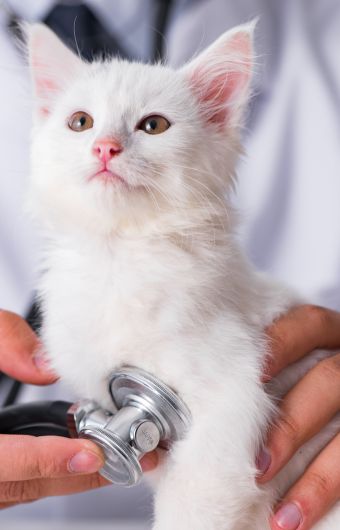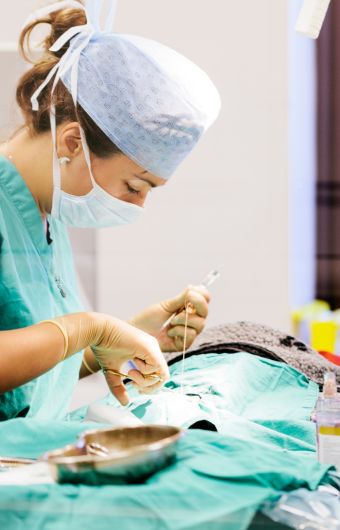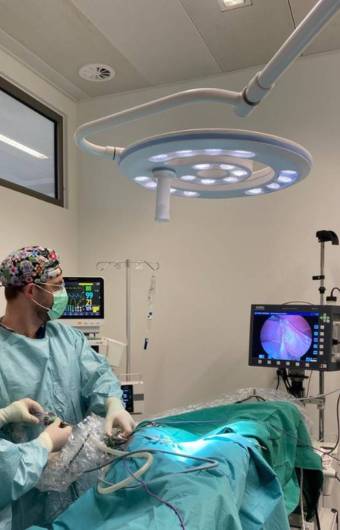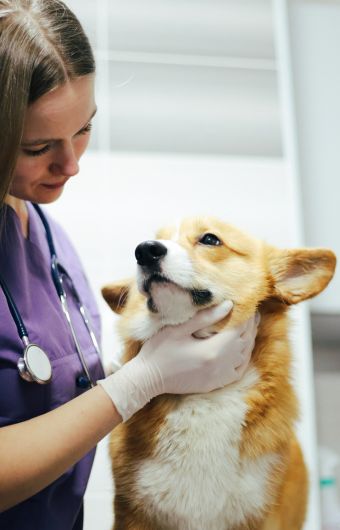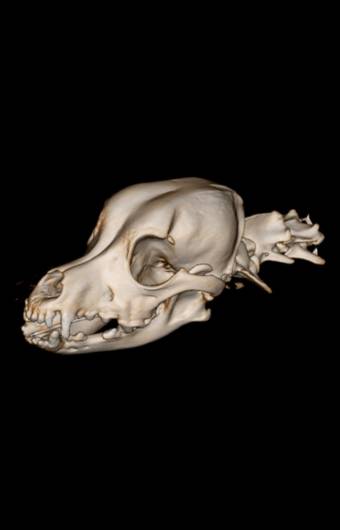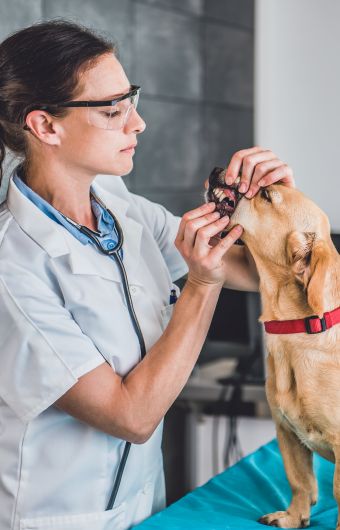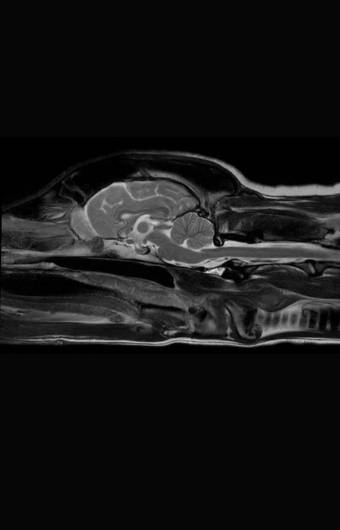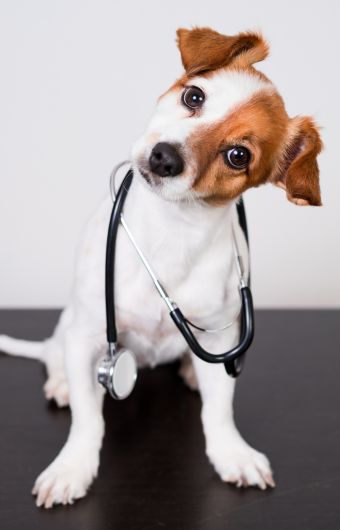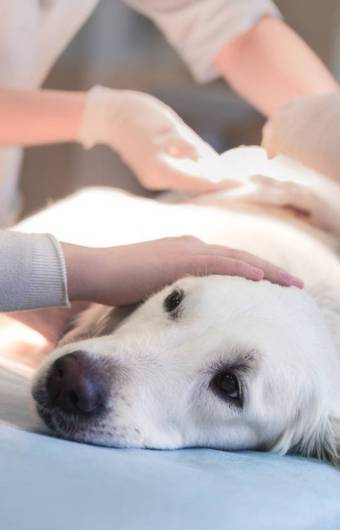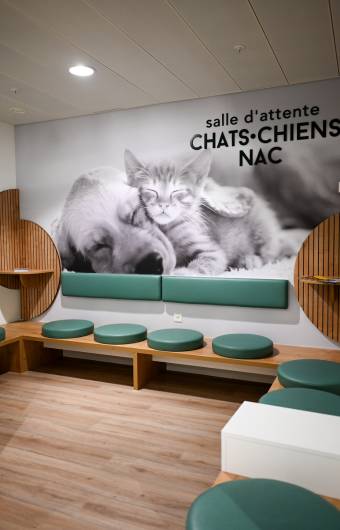Veterinary cardiology in Geneva: heart health for your pets
Your pets’ heart health is vital to their well-being and longevity.
The Vétélys clinic in Vernier Blandonnet, the largest veterinary facility in the canton of Geneva, has a specialized veterinary cardiology department. Our experienced team uses state-of-the-art equipment (echocardiography, ECG, holter, cardiac MRI) to diagnose, treat and monitor your animals’ heart conditions. Our 24/7 emergency team ensures optimum management of veterinary cardiology emergencies.
From preventive screening to the treatment of complex pathologies, our veterinary cardiology doctors offer tailor-made care to ensure your companions’ optimum quality of life. Find out all you need to know about the animal cardiology department at Vétélys.
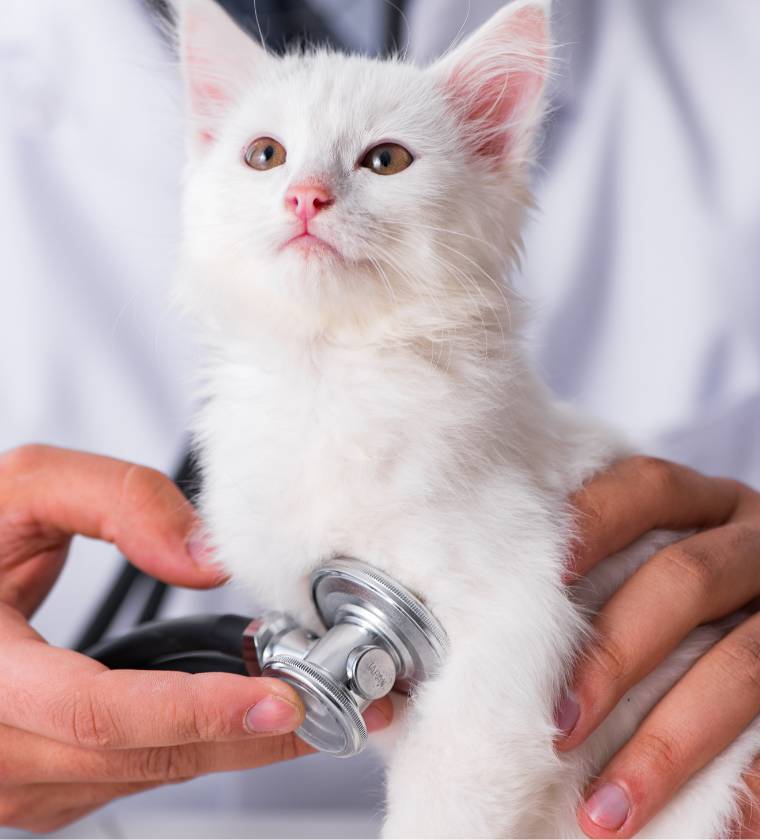
Veterinary cardiology Geneva Vernier
When should you consult? Which illnesses?
Is your pet in a worrying condition? Find out the main reasons to contact our veterinary cardiology service in Geneva and be treated by one of our vets.
When should my pet see a veterinary cardiologist?
Your pet may require a cardiology consultation in the following cases:
- Worrying clinical signs: persistent cough, shortness of breath, effort intolerance, unusual fatigue or loss of consciousness, syncope.
- Investigation of congenital or acquired heart murmurs: detected during a general medical consultation.
- Racial or hereditary predispositions: certain breeds of dog, such as Cavaliers King Charles and Boxers, and certain breeds of cat, such as Maine Coons, are more prone to heart disease.
- Monitoring chronic heart disease: such as congestive heart failure or cardiomyopathy.
- Pre-anaesthetic check-up: prior to surgery, to ensure good cardiac health.
- Post-traumatic work-up: myocarditis linked to trauma such as road accidents, falls from balconies…
A rapid, accurate diagnosis can make the difference in the management of pathologies
Emergencies 24/7
Veterinary cardiology Vernier Geneva
Course of a veterinary cardiology consultation in Geneva
A veterinary cardiology consultation in Geneva is divided into 4 stages: anamnesis, targeted clinical examination, complementary examinations, diagnosis and treatment plan.
Anamnesis and memorabilia
We start by gathering detailed information about your pet’s general health and lifestyle, any symptoms observed and medical history. This moment of exchange with you is essential to the care of your pet.
Targeted clinical examination
Thorough auscultation to detect abnormalities such as heart murmurs or irregularities in rhythm and pulse.
Additional specialized tests
- Echocardiography (cardiac ultrasound) to visualize the structure and function of the heart.
- Electrocardiogram (ECG) to analyze heart rhythm.
- Blood pressure measurement to assess blood pressure
- Holter to assess 24-hour rhythm, if required.
- Chest X-rays to assess the size of the heart and condition of the lungs.
- Chest CT scan for more precise exploration of lung territory.
- Specific blood tests if required.
- Cardiac MRI: this examination has traditionally been used in humans to screen for myocarditis, but is still undergoing experimentation in animals. Certainly a promising avenue for animal cardiac exploration.
Diagnosis and treatment plan
Depending on the results, the veterinary cardiologist will propose a personalized care plan: medication, regular follow-up, or sometimes specialized surgery.
Answers to your questions
Find out more about Vétélys’ cardiology department
How can I prepare my pet for a cardiology consultation?
Before the consultation, avoid feeding your pet for a few hours, unless specifically contraindicated. Bring your pet’s complete medical records, including the results of previous examinations (X-rays, echocardiograms), or ask for them to be sent by e-mail to
your veterinary surgeon (contact@vetelys.ch). Make sure he or she is calm, to limit stress.
How does an echocardiographic examination work?
The animal stands upright on the examination table, lightly held by its owner or the medical assistant so as not to move too much. Sedation is not recommended, as
it may alter the values of the examination. As a general rule, you can attend the examination and benefit from its conclusions immediately afterwards.
What to do after a veterinary cardiology consultation?
Scrupulously follow your veterinarian’s recommendations, whether they involve medication or changes to the living environment. Monitor
clinical signs at home, including respiratory rate (number of breaths per minute), and keep follow-up appointments.
Y a-t-il des contre-indications à une consultation en cardiologie ?
Aucune contre-indication, mais certains examens nécessitent que l’animal soit calme ou légèrement sédaté. Votre médecin vétérinaire vous expliquera les modalités avant chaque procédure.
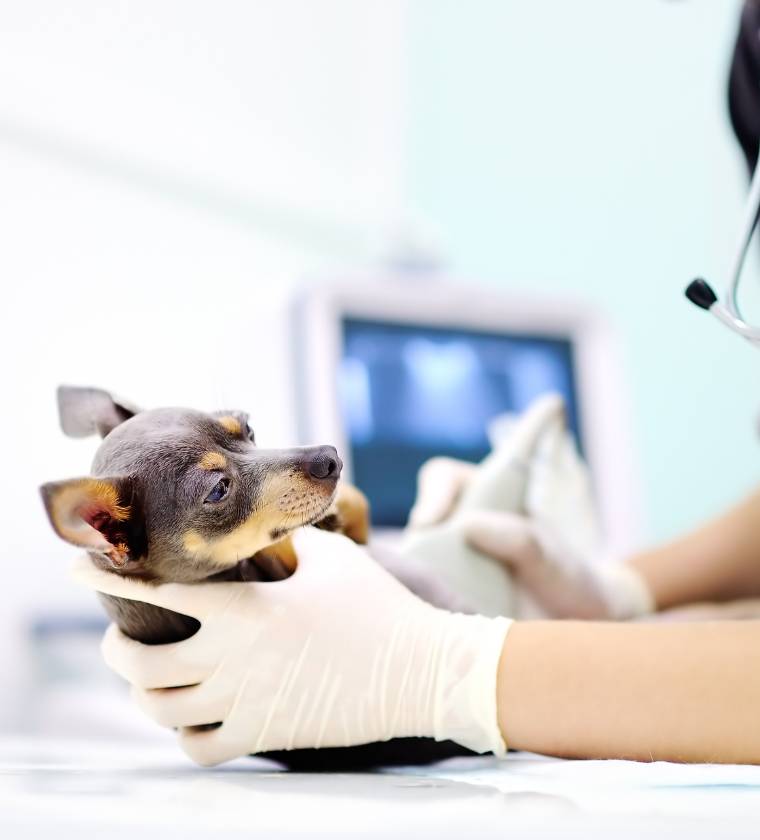
Testimonials
They’ve been to Clinique Vétélys
A warm welcome and very gentle vets who care about the well-being of both pets and owners.
A very gentle and human team. They are professionals who know how to accompany your animals as well as you do. I highly recommend them.
A big thank you to Dr Cathenoz, for his humanity and professionalism during such a traumatic moment as the euthanization of an animal. He did his utmost to relieve him right up to the end, and was very accommodating so that my dog left in the best possible conditions, with as little stress as possible. Thank you to the team, who were gentle and took a back seat so that we could live through this painful moment as well as possible.
A superb team of vets and assistants. Attentive, accommodating and above all very good at caring for our animals. With a smile and all the kindness in the world! I highly recommend them, and the welcome is top-notch.
Thank you so much for caring for our fur balls in the best possible way!
Very friendly, helpful and professional staff.
I recommend them to you it is top the assumption of responsibility and fast and the sympathetic veterinary looks after with the smile good listening also ^^
Experts Insights
Advice from our vets specializing in cardiology:
- Be alert for early signs: shortness of breath, coughing, fatigue, exertion intolerance or syncope may indicate a heart problem.
- Prepare your pet for the consultation: familiarize him with the journey and bring familiar objects to reassure him.
- Stick to your treatment schedule: regularity is crucial for heart disease.
Dr. Méd. Vét. Laure Murat, veterinary cardiologist, advises :
“In cardiology, the detection of morphological and kinetic changes in the heart has become the rule and today enables us to significantly increase the life expectancy and quality of life of cardiac animals. Consult a cardiologist as soon as you hear of a heart murmur, and make sure you follow regular check-ups to prolong your pet’s life. Ask your veterinarian for a careful auscultation at every visit. Plan a cardiac examination before anaesthesia, to be on the safe side”.
Consultations
-
Initial cardiology consultation: CHF 88, depending on species and examinations required.
-
Full echocardiography: CHF 295
-
Electrocardiogram (ECG): CHF 80
-
Cardiac follow-up packages: available on request for chronic pathologies.
A detailed estimate will be provided after the initial assessment if additional tests are required.
Clinic specialties
Discover our other specialties
